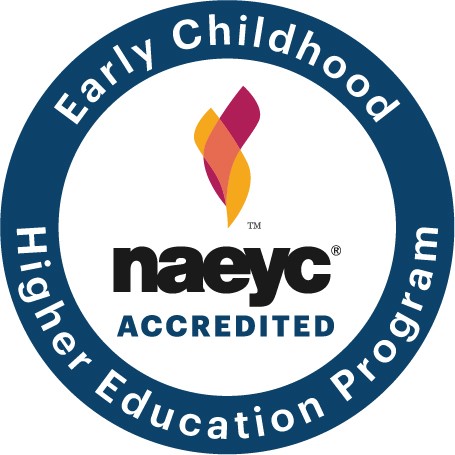| |
Apr 25, 2024
|
|
|
|
|
2024-2025 Undergraduate and Graduate Catalog
Early Childhood Education, AAS
|
|
 Return to: Undergraduate and Graduate Programs Return to: Undergraduate and Graduate Programs
Early childhood educators have the opportunity to have a significant impact on children’s lives, using their knowledge and skills to help children explore, learn and interpret the world around them. The early years of a child’s life set the stage, and much of what he or she learns and experiences during this time shapes his or her world in ways that can last a lifetime. The Early Childhood Education Associate of Applied Science degree program at Baker College is accredited by the Commission on the Accreditation of Early Childhood Higher Education Programs of the National Association for the Education of Young Children. The current accreditation term runs from August 2023 through March 2027.
|
Early Childhood Education Major - 30 Hours
General Education Requirements - 15 Hours
Program Elective Course List - 15 Hours
Select 15 credits from the following: Semester Hours Required for Graduation - 60
The Early Childhood Education Associate of Applied Science degree program at Baker College is accredited by the Commission on the Accreditation of Early Childhood Higher Education Programs of the National Association for the Education of Young Children. 
|
 Return to: Undergraduate and Graduate Programs Return to: Undergraduate and Graduate Programs
|
|




 Return to:
Return to: 